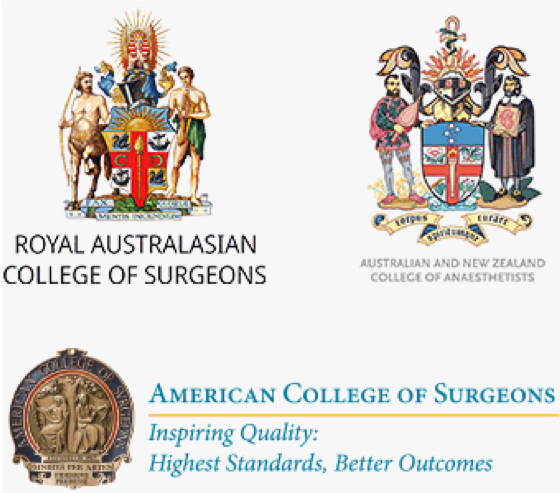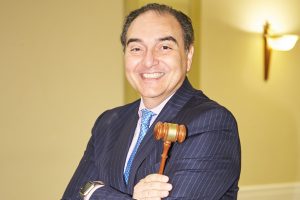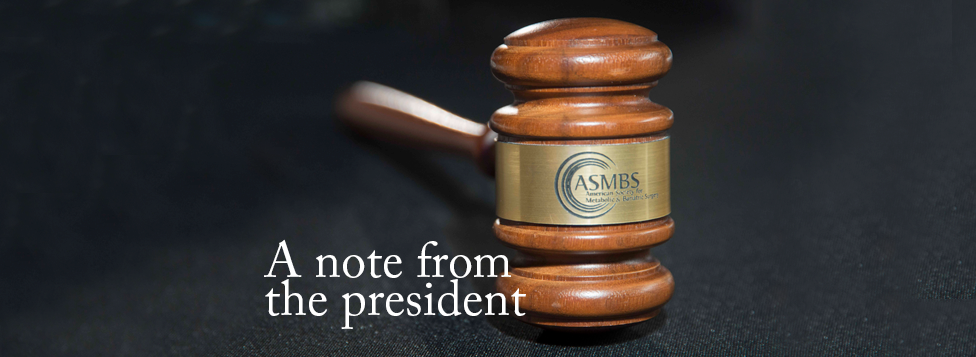I write this message from Sydney where I have been attending the 87th Annual Scientific Congress of the Royal Australasian College of Surgeons (RACS) and had the pleasure of meeting with our Australian colleagues in bariatric surgery. The past three days have granted me a wonderful opportunity to gain a better understanding of the attributes and barriers of delivering our life-saving operations to deserving patients in Australia.

On the one hand, it was so pleasing to learn of the superior quality of care delivered by our colleagues in this part of the world, but it was also sad to hear how Australians and New Zealanders face barriers to metabolic surgery within the public funding system. The vast majority of cases performed in Australia and New Zealand are supported by a combination of private funding and private insurance. That is right, my friends, it is apparent that Americans do not hold a monopoly on confronting challenges of discrimination by government funding; such hardships appear to exist and thrive, just as infuriatingly, Down Under, as they do stateside.

This meeting of ANZMOSS (The Australian and New Zealand Metabolic and Obesity Surgery Society) was held in conjunction with RACS and the main topic of the meeting was “Reflections on What Really Matters.” Many sessions that I attended addressed this area and it was here that I learned how Australian patients experience the same difficulties that our U.S. patients do; in addition to barriers to access to care, these patients endure long waiting lists, and undergo procedures in public hospitals that typically have low volumes. Moreover, surgeons here, like us, are not immune to the twin burdens of contemporary health care: unsympathetic hospital administrators and obtrusive electronic medical records, and various other forms of “noise” that serve to distract us, and them, from our core missions.
 But somehow, we all learn to slowly adapt. We develop abilities to cancel the noise and focus on what is important, and do it without compromising care. And, in spite of adopting and championing superior delivery of care in the most challenging of patients, there will be times when we may feel undervalued or misunderstood. It is in those times, when it would do us good to “reflect” on where we are, and how much we have grown, as individual surgeons and as a profession.
But somehow, we all learn to slowly adapt. We develop abilities to cancel the noise and focus on what is important, and do it without compromising care. And, in spite of adopting and championing superior delivery of care in the most challenging of patients, there will be times when we may feel undervalued or misunderstood. It is in those times, when it would do us good to “reflect” on where we are, and how much we have grown, as individual surgeons and as a profession.
This is when we take a moment to remember the millions of patients that we have treated; patients who now enjoy better health and better quality of life; who can now allay their health concerns and related anxieties, who can actually get on the floor and play with their children and grandchildren, who can keep up with their spouses when they walk in the park or go on cruises and who now have a healthier relationship with food, eat better, breath better, think better, and love better.
We can look back with satisfaction at how far we have grown as a profession, garnering respect and admiration from all stakeholders, and how our daily activities in the thousands of operating rooms across the country and over the years have been the driving engine for some of the most magnificent groundbreaking discoveries in medical research.
Yes, indeed, we have come a long way, thanks to the efforts of our predecessors and our trusting, brave and courageous patients. But, there is more work to be done. Reflection on the past and on things that matter is important and satisfying, but there is plenty more work to be done. And so, our noble and valiant fight continues.
We must persevere in delivering care and improving the health and wellbeing well beyond the 1-2% of eligible patients. We must support and respect each other as comrades in our just and gallant mission. We are all in this together, each one doing his or her part, delivering the highest possible standard of care, while educating and recruiting countless supporters in all communities. This is how we will continue to succeed and realize our ambitions, one day at a time, and one patient at a time.
Samer Mattar


